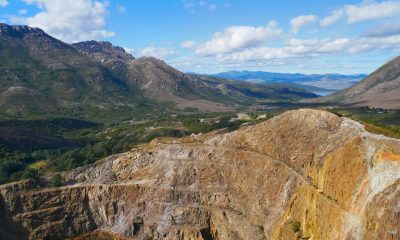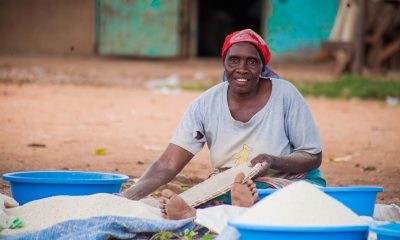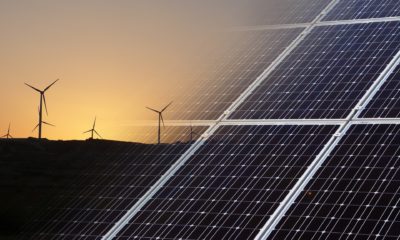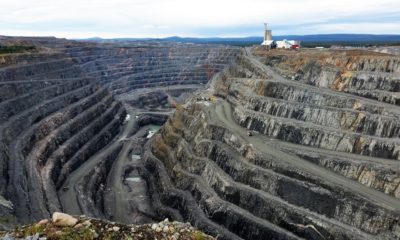Featured
Who benefits from Guinean bauxite?
The overall contribution of the extractive sector to Guinea’s GDP is around 15%, and represents only 32% of government revenue, 78% of exports and 0.4% of employment. Hence the question of whether Guinean mines are of any use to Guineans, who are sinking year after year into poverty. The situation of infrastructure, security, health, education, access to water and electricity is also catastrophic.
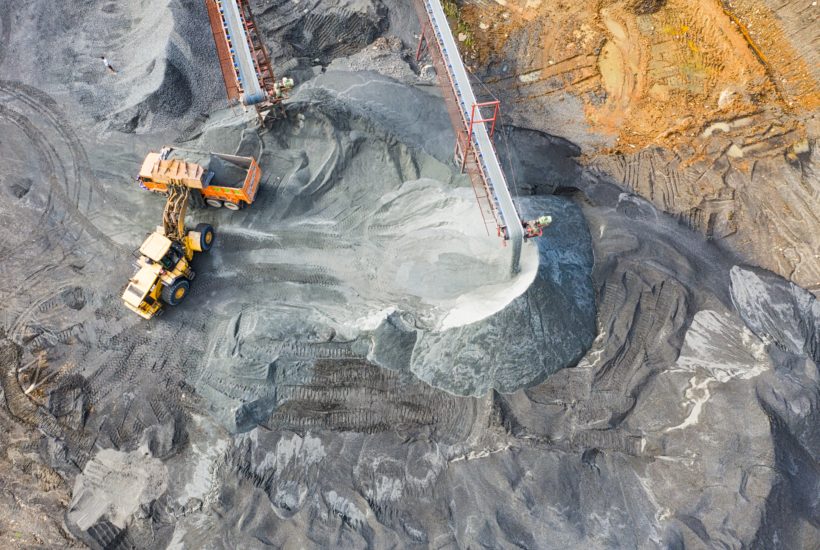
Guinea continues its inexorable march in the primary exploitation of its natural resources, particularly bauxite, of which it is home to two thirds of the world’s reserves.
The country’s annual production increased from 59.6 million tons in 2018 to 70.2 million tons in 2019, moving from third to second place, thus overtaking China and lining up just behind Australia, the world’s leading producer according to the World Bank. This dramatic increase of 18% in one year is mainly due to China, of which Guinea is now the leading supplier through Société Minière de Boké (SMB).
Read more mining news and find the latest happenings in the sector with the Mining News app.
The embargo imposed by Indonesia on exports to China is one of the reasons
This increase is the result of the embargo imposed in January 2016 by Indonesia on exports of its bauxite to China due to the environmental devastation caused to Guinean mines about 6 years ago. China has since then turned to Guinea to meet its bauxite ore needs, including the participation of Shandong Weiqiao, a Chinese mining company specializing in aluminum production. Since then, SMB has been exceptionally successful in driving Guinean bauxite production, ensuring that the Middle Kingdom continues to establish its hegemony in the global aluminum market. And as if to complete the circle, the Chinese SMB-Wining consortium has also won the concession for Blocks 1 and 2 of the Simandou iron deposit.
This “honorable” second place, which should have resulted in a reduction in unemployment, poverty and a consequent infrastructural development, is not in reality a second place. The country is still among the 25 poorest countries in the world (IMF), which mainly reflects a low production of wealth for the people. The current administration relies more on a totally obsolete and outdated mining rent economy whose sole purpose is to take advantage of the tax revenues from exploitation, even if it means selling off the country’s resources, than on the knock-on effect that a genuine industrial mining policy of local processing of natural resources could have had.
The Guinean government, surrealistically, is pleased to reach such levels of exploitation, hailing this as a feat when, apart from the totally artificial macroeconomic impact, there are virtually no indicators of a real correlation between the country’s (exclusive) economic growth driven mainly by mining and poverty reduction. The overall contribution of the extractive sector to Guinea’s GDP is around 15%, and represents only 32% of government revenue, 78% of exports and … 0.4% of employment.
Hence the question of whether Guinean mines are of any use to Guineans, the overwhelming majority of whom are sinking year after year into poverty. The situation of infrastructure, security, health, education, access to water and electricity, etc… is also catastrophic despite the millions of tons of bauxite shipped to China and other Western countries.
The only visible impact on the Guinean population of this unbridled race to mass primary exploitation of the country’s bauxite deposits is the unprecedented degradation of the environment, caused by mining companies that are sometimes not very inclined to respect the mining code and business ethics, which do not hesitate to import labor “into conquered territory.”
These companies control the country’s mining resources (with “mining resources for conditional financial loans” agreements). An expropriation that resembles exuberant neo-colonialism.
__
(Featured image by Tom Fisk via Pexels)
DISCLAIMER: This article was written by a third party contributor and does not reflect the opinion of Born2Invest, its management, staff or its associates. Please review our disclaimer for more information.
This article may include forward-looking statements. These forward-looking statements generally are identified by the words “believe,” “project,” “estimate,” “become,” “plan,” “will,” and similar expressions. These forward-looking statements involve known and unknown risks as well as uncertainties, including those discussed in the following cautionary statements and elsewhere in this article and on this site. Although the Company may believe that its expectations are based on reasonable assumptions, the actual results that the Company may achieve may differ materially from any forward-looking statements, which reflect the opinions of the management of the Company only as of the date hereof. Additionally, please make sure to read these important disclosures.
First published in Financial Afrik, a third-party contributor translated and adapted the article from the original. In case of discrepancy, the original will prevail.
Although we made reasonable efforts to provide accurate translations, some parts may be incorrect. Born2Invest assumes no responsibility for errors, omissions or ambiguities in the translations provided on this website. Any person or entity relying on translated content does so at their own risk. Born2Invest is not responsible for losses caused by such reliance on the accuracy or reliability of translated information. If you wish to report an error or inaccuracy in the translation, we encourage you to contact us.

-

 Biotech2 weeks ago
Biotech2 weeks agoWhy Bioceres Shares Slide Into Penny Stock Territory
-

 Crowdfunding2 days ago
Crowdfunding2 days agoReal Estate Crowdfunding in Mexico: High Returns, Heavy Regulation, and Tax Inequality
-

 Africa1 week ago
Africa1 week agoAgadir Allocates Budget Surplus to Urban Development and Municipal Projects
-

 Biotech6 days ago
Biotech6 days agoVolatile Outlook for Enlivex Therapeutics as Investors Await Clinical Catalysts
